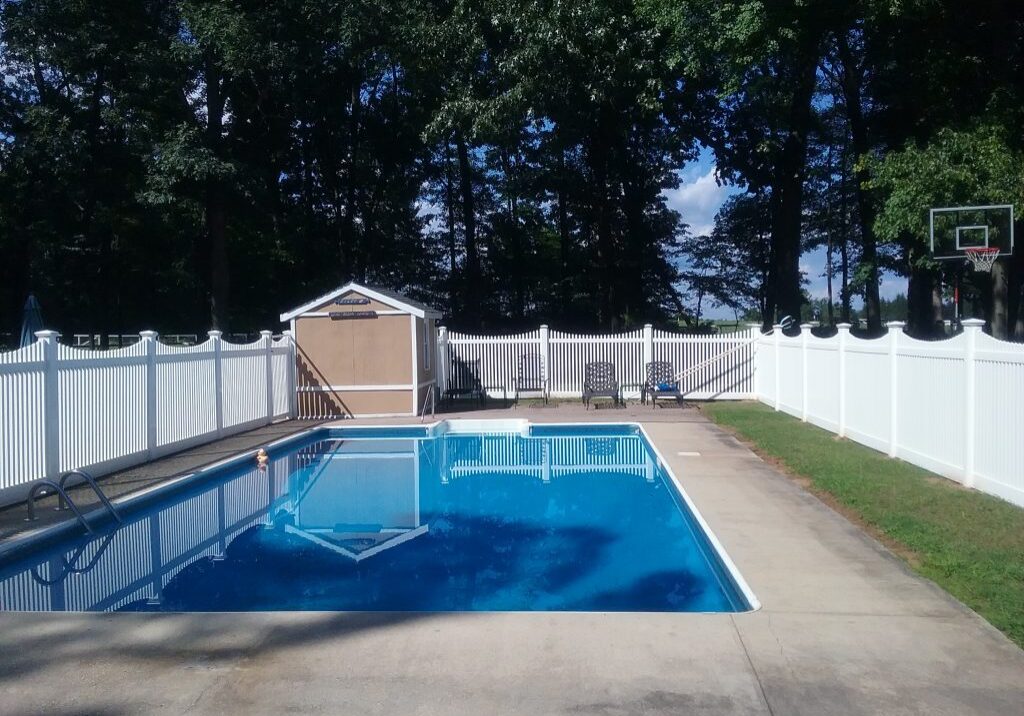All Categories
Featured

When setting up a fencing, picking the ideal material is key to stabilizing functionality, aesthetic appeals, and budget. Wood, plastic, and aluminum are among the most frequently picked fencing products, each with its strengths and downsides. This overview explores the benefits and drawbacks of these choices to help you make a notified decision.

Timber Fence. Pros:. Natural Beauty: Wood's timeless charm can improve any type of building with its classic and warm appearance. Customizable: You can repaint, discolor, or sculpt wood to fit your style preferences. Economical: Timber fence is originally a lot more affordable contrasted to some other products. Eco-friendly: As a sustainable source, timber is biodegradable and often thought about environment-friendly. Disadvantages:. Maintenance-Intensive: Routine sealing, painting, or staining is called for to stop damage from weather and insects. Prone to Degeneration: Without appropriate care, timber can rot, warp, or split in time. Much shorter Lifespan: Generally, wood fences last 10-15 years, relying on the kind of timber and upkeep. Wood is a fantastic option for those that value visual appeals and want to buy routine upkeep to protect its appearance and sturdiness.
Plastic Fencing. Pros:. Reduced Upkeep: Plastic calls for marginal treatment-- just periodic cleansing with soap and water. Climate Resistant: It does not warp, rot, or catch insect damage, making it very sturdy in different environments. Longevity: Vinyl fences can last 20-30 years with little to no repair work. Design Range: Available in a large range of structures, designs, and colors, consisting of wood-like appearances. Disadvantages:. Higher Initial Expense: Plastic fencings are extra pricey upfront compared to wood. Susceptability to Cold: In incredibly winter, vinyl can become fragile and vulnerable to breaking. Limited Repair Work Options: Matching substitute panels can be challenging if damages happens. Vinyl fencing is suitable for homeowners searching for a long-lasting, low-maintenance remedy that provides contemporary flexibility.

Light Weight Aluminum Fencing. Pros:. Rust-Proof: Light weight aluminum withstands deterioration, making it an outstanding option for humid or damp atmospheres. Resilient: In spite of being lightweight, light weight aluminum is solid and can hold up against rough weather. Low Upkeep: It needs very little maintenance, typically just periodic cleaning. Long Lifespan: Light weight aluminum fences can last decades without substantial wear and tear. Stylish Design: Typically used for decorative purposes, aluminum fence includes a streamlined, innovative want to properties. Cons:. High Preliminary Investment: Light weight aluminum fencings are amongst the pricier alternatives on the marketplace. Much less Privacy: The open layouts typical with aluminum secure fencing do not provide much privacy. Susceptible to Damages: While long lasting, aluminum can dent if hit with adequate pressure. Light weight aluminum is a superb option for home owners prioritizing appearances and sturdiness without requiring much maintenance.
Making Your Decision. When determining in between timber, aluminum, or plastic fencing, consider your concerns:
Timber suits those who value a natural look and don't mind placing in maintenance initiative. Vinyl is the very best choice for those seeking a low-maintenance, weather-resistant solution. Aluminum uses smooth design and durable durability but may lack privacy. By carefully examining these products' attributes, you can pick a fencing that complements your home while meeting your aesthetic and useful requirements.
Latest Posts
Find Leading Car Repair Care offered by Montclare Auto Repair – Quality Service Today
Published May 31, 25
1 min read
Find Best Auto Repair Services offered by Montclare Auto Repair – Drive with Confidence
Published May 27, 25
1 min read
Why Routine Vehicle Maintenance at Montclare Auto Repair Keeps Your Wallet Happy
Published May 26, 25
1 min read
More
Latest Posts
Find Leading Car Repair Care offered by Montclare Auto Repair – Quality Service Today
Published May 31, 25
1 min read
Find Best Auto Repair Services offered by Montclare Auto Repair – Drive with Confidence
Published May 27, 25
1 min read
Why Routine Vehicle Maintenance at Montclare Auto Repair Keeps Your Wallet Happy
Published May 26, 25
1 min read